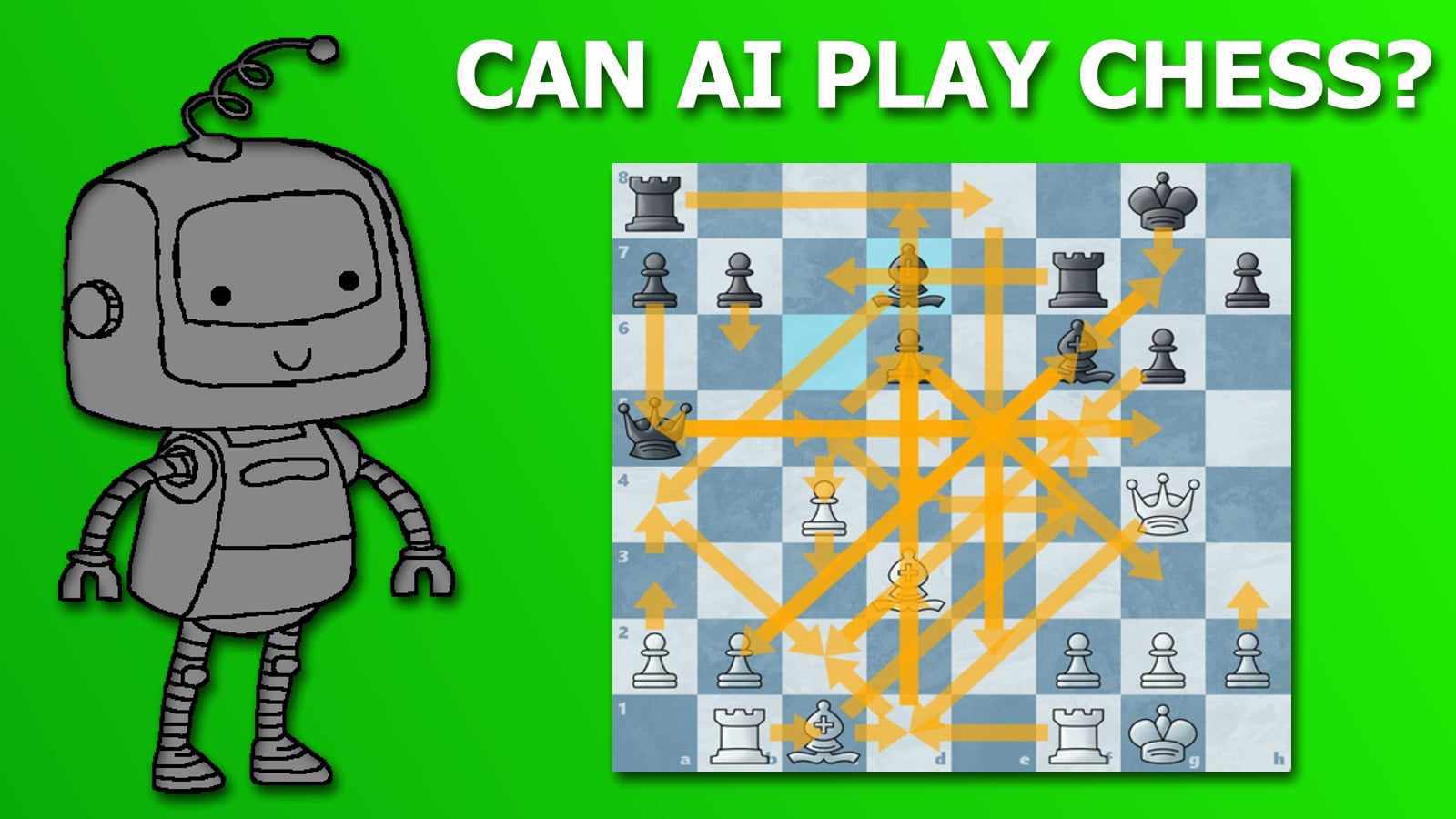
20.08.2024
Can AI play chess?
Artificial intelligence (AI) has fascinated and inspired scientists and technology enthusiasts around the world for years. One of the most well-known applications of AI is its ability to play chess. Since the creation of the first computer chess programs, AI has come a long way, reaching a master level and competing with the best players in the world. This not only showcases technological progress but also raises questions about the limits of human creativity and intellect in the face of the growing capabilities of machines.
Chess presents a unique challenge for artificial intelligence, requiring both strategic thinking and the ability to analyze millions of possible moves. Thanks to advanced algorithms and enormous computational power, modern chess programs like Deep Blue and AlphaZero can predict opponents' moves and develop complex strategies. As a result, AI not only can play chess but often surpasses human champions, opening new possibilities in the field of AI research and its potential applications in other areas of life.
In this article, I would like to test available free artificial intelligences, such as ChatGPT, in the context of whether they can play chess well. Each AI will play one game with me. You will find the analysis of the games played below. Enjoy reading!
Perplexity AI
link - https://www.perplexity.ai/
Firstly, I would like to introduce an AI chatbot named Perplexity AI, with which I played a game in the Alapin Sicilian Defense. Initially, it made flawless moves for the first 6 moves, but on the 7th move, it began sacrificing everything from the bishop to the queen. This program was likely designed to employ chess theory in every opening against humans. It started flawlessly, but later in the game, as I mentioned earlier, it began sacrificing all its pieces. Moreover, its moves justified a logical defense, but it was describing a completely different game than the one we were playing. I attempted several times to guide it towards the actual game we were playing, and this artificial intelligence provided a preview of the chessboard that matched mine perfectly. Despite a simple position, Perplexity AI failed the test; it started inventing and adding other moves, leading to a quick defeat. I am only curious as to how it decided to capture a rook on a8 with a knight that was on c7. I present the entire game in the diagram below, without delving into analysis, because just as quickly as it began, the game ended.


Perplexity AI definitely cannot play chess, as evidenced by the game above.
ChatGPT
link - https://chatgpt.com/
My next opponent was probably the most popular artificial intelligence, namely ChatGPT. As in the case of the colleague above, ChatGPT played the theoretical opening very well, but again, at some point, it started making moves that are impossible in this position – it wanted to capture a pawn on d4 with its queen, but the problem was that the queen was on d8 and its knight was on d5, making the move impossible. When I pointed out that it made an illegal move, it continued with the theory. When I castled, I expected it to also castle, which is a continuation of the theory, but unfortunately, I was wrong, and it blundered a pawn with check. In the end, it completely changed the position, so I decided to end the game with it. As you can see, even the most popular AI is not able to make normal moves after a few moves, although it handles difficult mathematical problems quite well.



ChatGPT definitely cannot play chess, as evidenced by the game above.
DeepAI
link - https://deepai.org/chat
My third consecutive opponent is DeepAI, which, like the previous artificial intelligences, blundered a piece and made an illegal move within 10 moves. Specifically, on the 6th move, it decided to give up its knight, then played its queen to e7, likely aiming to attack the pawn on e4. In the next move, it wanted to castle, but the problem is that it couldn't castle because it hadn't developed its pieces, and the rook can't jump over the piece, just like the king.


DeepAI definitely cannot play chess, as evidenced by the game above.
HuggingChat
link - https://huggingface.co/chat/
The fourth and final opponent is an artificial intelligence named HuggingChat. This opponent already had problems with moves on the 2nd move, making it the record holder in this article. Like the previous artificial intelligences, this one also made illegal moves, and amusingly, in the final move, I captured a pawn with my bishop, which Stockfish considers a mistake, but HuggingChat decided there were no moves left and resigned. As you can see, I tried to play against four AIs, and all of them made the same mistakes, so it can be concluded that artificial intelligence cannot play chess and is not even 1% as good as chess engines like Stockfish or Deep Blue.


HuggingChat definitely cannot play chess, as evidenced by the game above.
To conclude, my tests with four different artificial intelligences revealed that none of them can effectively play chess. Each AI either blundered in the opening or made illegal moves, demonstrating a lack of basic chess understanding. Compared to advanced chess engines like Stockfish or Deep Blue, these AIs are significantly weaker and fail to provide a competitive or accurate chess-playing experience.
Thank you for reading, and I invite you to check out my previous articles.